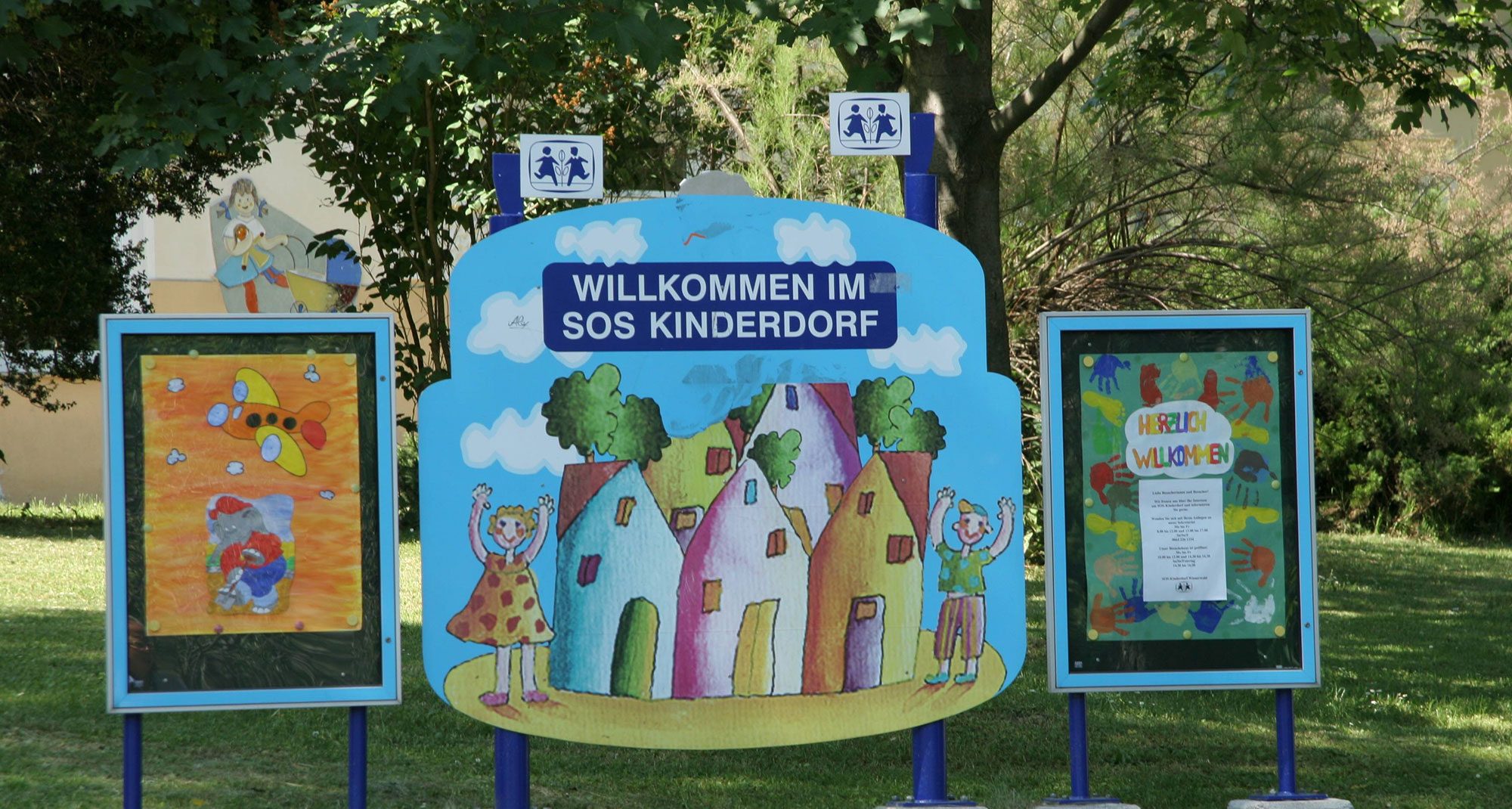The abuse and corruption scandal at SOS-Kinderdorf surfaced early May 2021. The organization is doing its best to restrict information on the internal ‘independent’ investigation headed by Waltraud Klasnic. The future of SOS-Kinderdorf will hinge on how they deal with this scandal.
Diana Mautner Markhof, 21 June 2021
SOS-Kinderdorf is THE Austrian flagship charity organization. Conceived by humanist Herman Gmeiner after World War II in 1949, SOS-Kinderdorf set out to provide orphans and abandoned children a home. The organization had its beginnings in Imst, located in the Austrian province of Tirol. By 1959 the first SOS-Kinderdorf home was opened in Germany, financed by the industrialist Béatrice von Boch-Galhau. The rest is history. Today SOS-Kinderdorf is present in 137 countries with 3000 SOS-Kinderdorf children’s homes/villages.
Donations to SOS-Kinderdorf are high and the Austrian charity is known worldwide for its good deeds. According to its 2019 financial statement, SOS-Kinderdorf in Austria received EUR 38 million in donations from private individuals and a further EUR 89 million from public funding for taking care of needy children. Furthermore, SOS-Kinderdorf received high transparency scores in a survey by the journal Der Spiegel in November 2018. According to Der Spiegel, for every EUR 100 donated to SOS-Kinderdorf, charitable projects accounted for EUR 88 and administrative expenses for EUR 12. Another investigation by the research platform addendum.org in 2017 found that SOS-Kinderdorf was a highflyer when it came to fundraising costs, which accounted for almost 17% of the total funds raised. Glossy pictures of celebrities, sports stars and politicians at various SOS-Kinderdorf charity events attest to this. But as the old saying goes, if something looks too good to be true then it probably is too good to be true.
In 2014 the Austrian historian Horst Schreiber published a widely acclaimed book “Dem Schweigen Verpflichtet: Erfahrungen mit SOS-Kinderdorf” (Bound to Secrecy: Experiences of SOS-Kinderdorf) on his research into the SOS-Kinderdorf global organization and its systemic failings. He wrote about the violence, abuse and violation experienced by children and adolescents in SOS-Kinderdorf “homes”. Schreiber analyzed structural moments in the history of the organization that made repression and violence possible. According to his critical study, the concept of care introduced with the founding of the organization recreated a familial situation with the traditional hierarchy of the sexes. The home leader represented paternal order and sanctioning power, while the Kinderdorf mothers represented a healing force for the abandoned child. Scheiber came to the conclusion that numerous children had to experience a “falling out of the nest” a second time. To protect its reputation, SOS-Kinderdorf has been concerned with secrecy for a long time when it came to sexualized violence against the children and adolescents entrusted to their care. Many signs of abuse were systematically ignored by the organisation
In early May 2021 news of a massive international scandal at many SOS-Kinderdorf homes surfaced. For the past 30 years, employees in various SOS-Kinderdorf locations around the world had misappropriated funds and are now being investigated by the organization on corruption charges. And, as if that in itself were not bad enough, it became known that children in 50 SOS-Kinderdorf homes located in 20 countries around the globe had become victims of sexual abuse and/or violence. These abuses and mismanagement had finally become more widely known through the main stream media (MSM) despite the organization’s best efforts to suppress this scandal. The secrecy which has accompanied this scandal continues to be perpetuated. SOS-Kinderdorf has not been forthcoming with any further information regarding the homes/villages involved, the exact number of children abused or the amount of money which has been misappropriated. Horst Schreiber’s book was prophetic, unfortunately.
In an effort to quash the story, SOS-Kinderdorf installed an “independent” investigative committee headed by Waltraud Klasnic, a well-known Austrian retired politician and former governor of the Austrian province of Styria. No information was provided as to whether the victims of abuse are to be represented or are given a voice in this investigation. Also, the public is not being informed of the progress of the investigation. In an interview with the Austrian Broadcasting Corporation (ORF), Ms. Klasnic stated that she is currently investigating 22 cases. Her goal is to investigate each and every case. The idea of paying reparations to the victims has been floated. Cynics might accuse SOS-Kinderdorf of wanting to silence the victims of sexual violence through these payments.
Although this scandal is shocking, the ORF hardly reported the story when it first came out at the beginning of May 2021. The ORF is a state media corporation which is publicly subsidized by nearly everyone in Austria. It operates four national television stations and twelve radio channels, as well as numerous online sites. During the days when the SOS-Kinderdorf scandal broke, other topics – such as Chancellor Sebastian Kurz’ Chat protocols and SMS messages between Austrian Finance Minister Gernot Blümel and former CEO of Novomatic Harald Neumann – were of much greater interest to the ORF than the SOS-Kinderdorf revelations, with a mere cursory mention on the evening news as one of the last items on the agenda.
Where is the Austrian judiciary in this case many might ask? The answer is, probably too busy investigating politicians and their private, or semi-private chats and SMS messages. An investigation into the SOS-Kinderdorf abuses and the misappropriation of funds, which are punishable serious criminal offences under the Austrian criminal law code, should be initiated. Not only should prosecutors investigate the organization, but also the management of the organization who swept under the carpet knowledge of these abuses. Can an organization credibly absolve itself from criminal liability through an “independent” committee created and financed by the organization itself?
The ORF has a public responsibility to make the SOS-Kinderdorf scandal a top priority. The future of the organization will depend on how they handle this scandal, or will they continue to be bound to secrecy?





